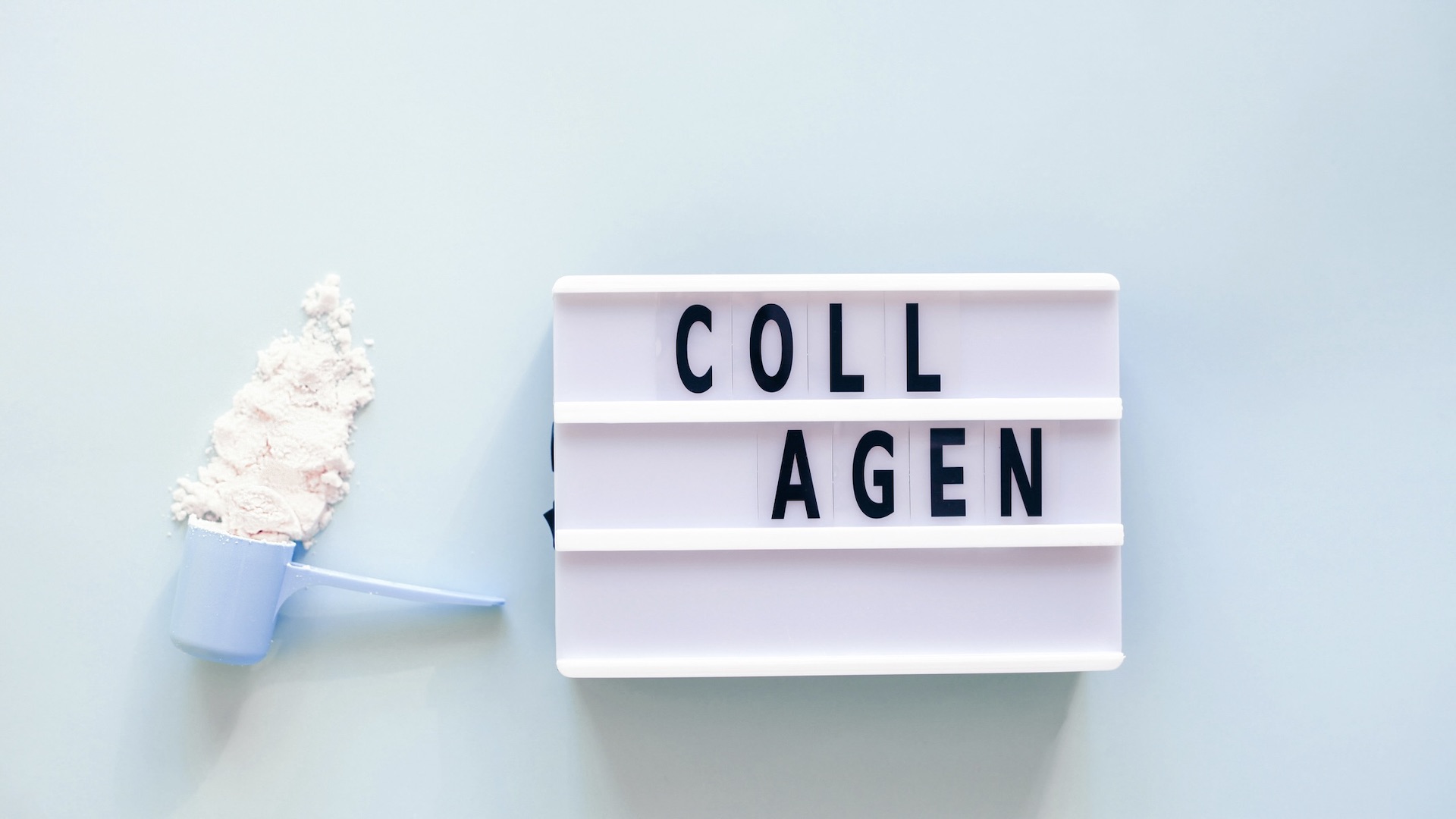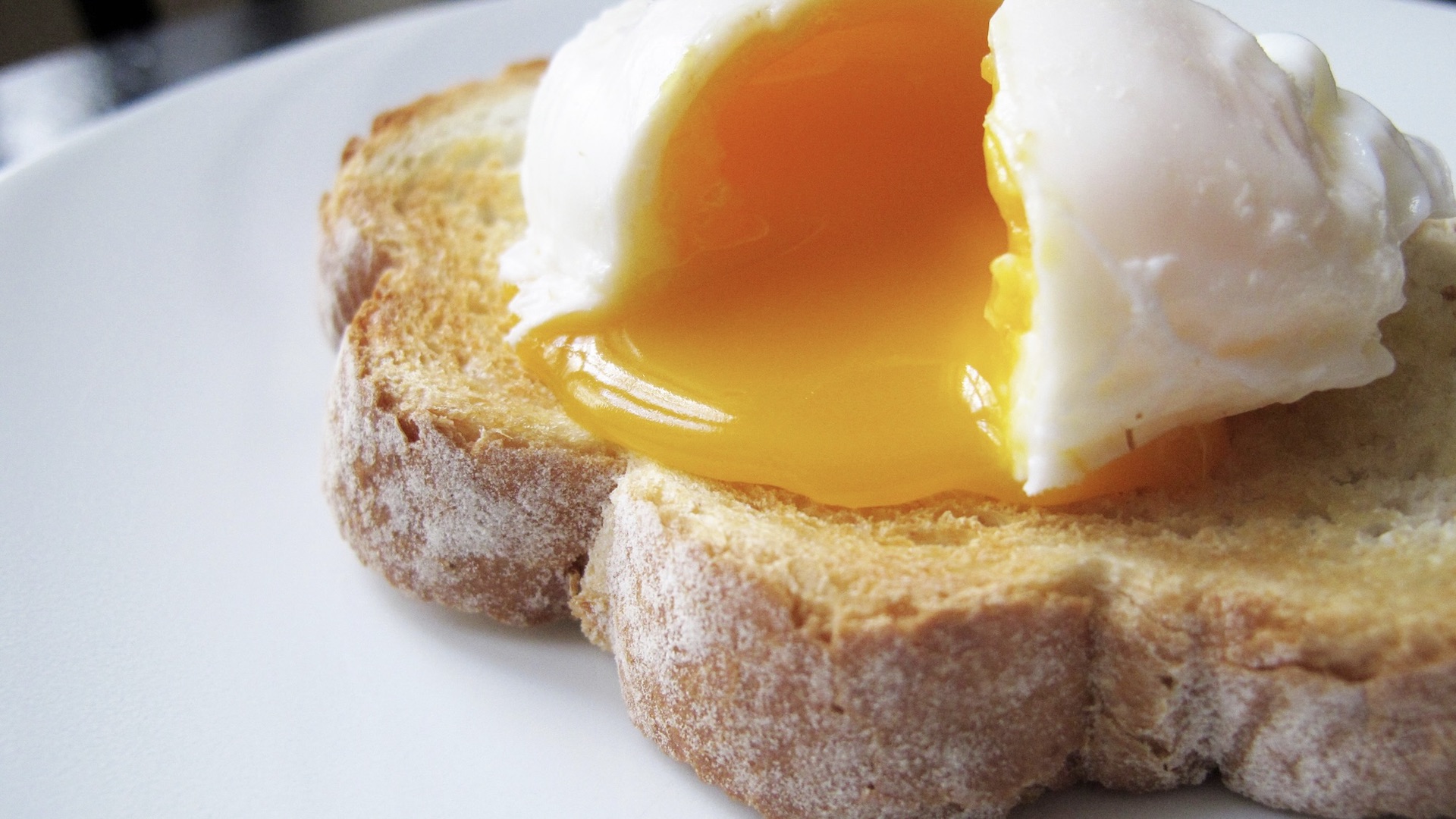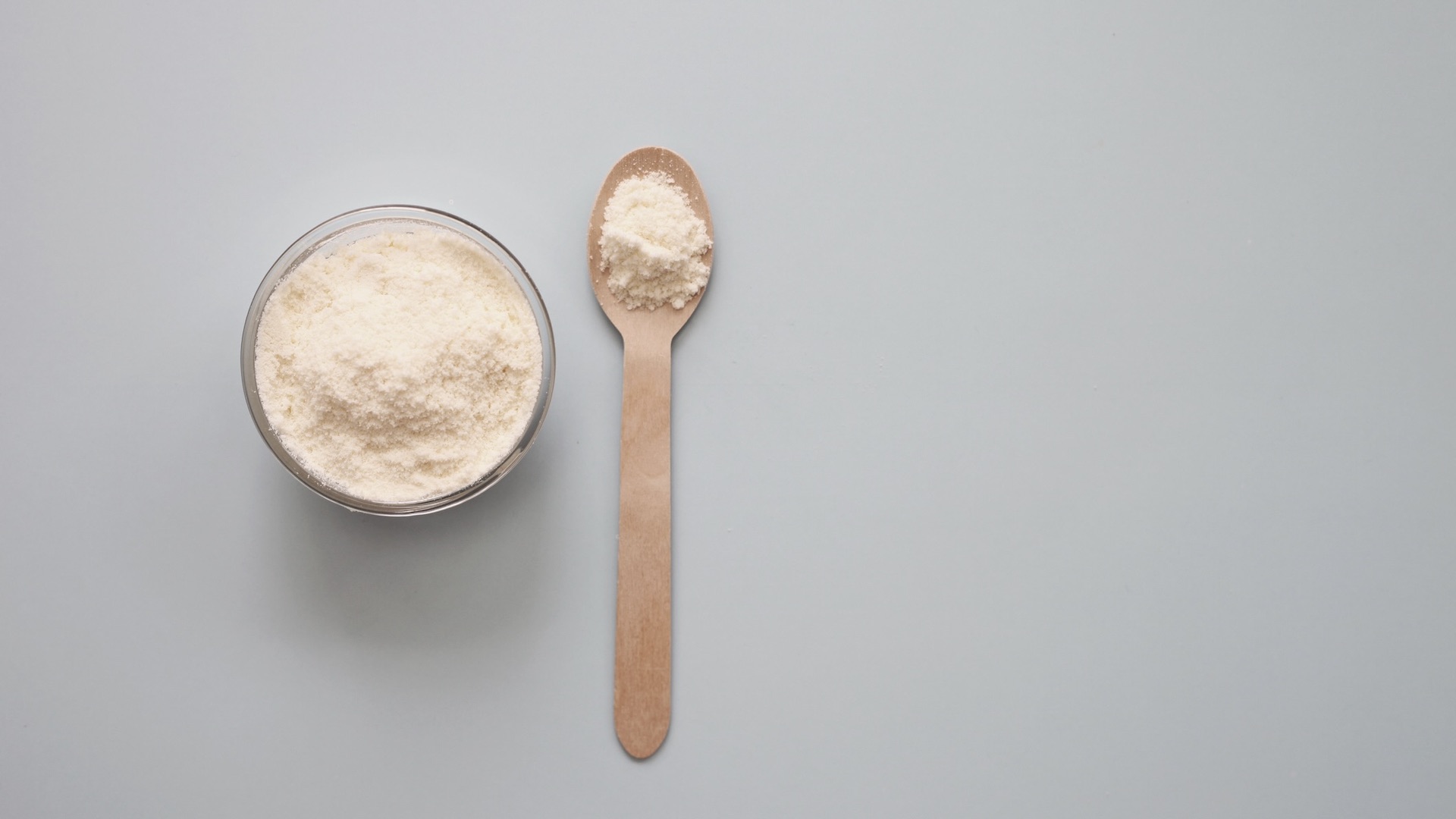Is collagen good for runners, and should you be taking a supplement?
As sales of collagen supplements rise, we provide an expert guide to the possible pros and cons

All the latest inspiration, tips and guides to help you plan your next Advnture!
You are now subscribed
Your newsletter sign-up was successful
Did you know that collagen is the most abundant protein in the human body? It forms a scaffold to provide strength and structure in our bodies and can be found in bones, muscles, skin and tendons, so you can see why runners – and the professionals who study their performance – might be interested in ways to enhance it.
Many want to know whether there are any benefits to boosting collagen levels. At the most basic level, this might be looking at diet and lifestyle to ensure your body has enough natural collagen. It’s important to look at exercise habits and frequencies, too. There are also lots of different collagen supplements on the market.
But is any of it good for runners?

What is collagen – and the different types?
Collagen is one the major structural proteins and building blocks of the human body. In fact, collectively, collagen comprises some 25% to 30% of the body’s protein. It is made from the amino acids glycine, proline, hydroxyproline, and arginine.
Collagen provides structure and acts like a glue to your skin, hair, skeleton, tendons, muscles, ligaments, corneas, teeth and blood vessels.
Suzie Sawyer, an expert nutritionist for So Body Co, explains: “Collagen forms part of the essential tissue matrix that essentially holds us together. We would fall apart without it.“
There are 16 different types of collagen within the body, all with slightly different roles. However, some 80% to 90% of the collagen is type I, II, or III. Although all forms are essential in the body, research on athletes usually to focus on these three.
All the latest inspiration, tips and guides to help you plan your next Advnture!
Type I collagen: This type of collagen is the most dominant, and forms the strengthening in bone, cartilage, tendons, teeth and connective tissue.
Type II collagen: This is the collagen that is the basis for hyaline cartilage, including the articular cartilages at joint surfaces. It behaves like gel to give cushioning to joints. Type II collagen is one of the primary connective tissues of the body, providing flexibility and support to joints.
Type III collagen: This collagen supports the structure of the muscles, arteries and organs.

Factors that might affect your collagen levels
There are a number of reasons why collagen levels can be depleted. These include aging, as well as changes in hormone balances due to pregnancy, menopause and other health conditions.
As we age, we naturally lose collagen. ”The aging process causes collagen fibres to decrease, stiffen and break apart – and this process accelerates after 30," Sawyer said. "This is mainly because the body’s natural repair and renewal processes slows down."
Rob Hobson, who is a consultant nutritionist at Healthspan, adds: “After the age of 40, the body can lose around 1% per year. At the age of 80, on average, collagen production can decrease 75% overall in comparison to that of young adults.”
Menopausal women have been found to have less collagen, too. Research has shown there is a strong correlation between skin collagen loss and oestrogen deficiency in menopause.
Another reason for collagen issues could be oxidative stress, which results from metabolic processes and lifestyle choices, such as smoking and diet.
Too much sun exposure as UV rays can also cause collagen to break down in the skin and affect elasticity, leading to lines and wrinkles.
It is also possible that high levels of intense exercise might negatively affect collagen. A study of thoroughbred horses concluded that strenuous exercise provoked significant alterations in the characteristics of the collagen network of the articular cartilage of the fetlock joint. However, human studies of this nature are hard to find.

Collagen: diet, life and exercise
There is a debate about whether people with a healthy diet need to take extra collagen.
Many people point to good and balanced diet as offering adequate collagen. For example, foods known to boost collagen production include meat, bone broth, fish with the skin on, eggs, fruit, vegetables, dairy and soy.
Collagen production also requires nutrients such as zinc, which is found in shellfish, legumes, meats, nuts, seeds and whole grains, and vitamin C, which is found in citrus fruits, berries, leafy greens, peppers and tomatoes, for proper synthesis.
However, it can be argued that the modern diet may not be sufficient to supply the right levels of collagen.
In addition, as Suzie, points out "consumption of collagen can be more challenging for vegans and vegetarians because only animal protein sources contain all the essential amino acids.
“Also, while vitamin C is found in most fruits and vegetables, food preparation and storage can deplete the nutrients. Vitamin C is also water-soluble, so it might be that your diet is low in this nutrient.”
Rest and recovery should be another consideration in regards to collagen health.
Exercise is also known to improve physical properties, such as muscle strength, as well as mass and turnover of collagen in bone, ligaments and tendons.
However, there are studies that have looked at what happens to collagen in response to exercise and specifically high tendon load exercise, such as running. This research suggests after running it takes 36 to 48 hours for collagen levels to return to normal. This means that 24 hours after running there is likely to be net loss of collagen. It might only be a small net loss but over many years this mounts up.
Collagen effects: the evidence
There is also a growing area of research that appears to suggest that artificial collagen supplementation could prove useful to health.
Indeed, while glucosamine and chondroitin have long been used as active ingredients for joint health, more recently, collagen has been gaining a larger market share.
According to market data reported in the Nutrition Business Journal sales in the joint health market increased by 4.3% in 2018 in the US alone, largely driven by a boost in collagen sales, which increased by 30%. Collagen is sold as powders, gummies, capsules and drinks.
When it comes to repairing tendons and ligaments, collagen is the most widely researched supplement.
For example, a research review that assessed collagen peptide supplementation, in conjunction with exercise, found it may be beneficial for the management of degenerative bone and joint disorders. But it was also noted that there needed to be further studies with larger samples of participants.
The sports industry has also been keen to research the benefits of collagen supplements, especially after several cases of anecdotal improvements in physical health, such as among England rugby players .
Some experiments have demonstrated that collagen peptides can boost elastin and collagen types I and II. It was concluded by one study that a type of collagen peptide supplement might be an "interesting option" for the treatment and prevention of injuries and ruptures of ligaments and tendons.
Meanwhile, further research, this time from the Australia Institute of Sport , appeared to show improvements in Achilles tendon injuries with 5g of collagen daily, for three to six months.
It’s thought that collagen supplementation could be effective when there are joint issues, such as from activity related knee joint issues.
In addition, an an experiment found that oral supplementation of specific collagen peptides, combined with calf-strengthening exercises, enhances function and reduces pain for people suffering with Achilles tendinopathy.
As well as focusing on tendons, some research has looked at muscle strength. A study has suggested that taking collagen supplementation can improve muscle strength in people with already compromised skeletal issues.
Looking more closely at the physical health of sports people, such as runners, a study, published this year in the Journal of Human Sport and Exercise, of 61 men and women suggests that a “periodic intake of hydrolysed collagen could help a better performance because it improves the conditions of muscles and joints”.
Also, a research project reported in Frontiers of Physiology found some positive effects of collagen hydrolysate supplementation on changes in patellar tendon (PT) properties after 10 weeks’ training in a team of under-21s female soccer players. In this case, it was suggested collagen supplementation might help to mitigate injury risk.
Collagen supplementation might also be a favourable consideration for post-menopausal women.
It is important to note that most of the studies were carried out on small sample sizes and there are few that specifically focus on athletes. The general conclusion from scientists is that more wide-scale experiments need to be carried out for conclusive results.

Collagen supplements: to take or not to take?
While research is growing into the benefits, or not, of collagen supplementation, the research area for sportspeople, including runners, is still relatively new.
Collagen supplements are derived from animal products, such as beef or fish, and there is no natural vegan source for the protein. If you see vegan “collagen” it will be a plant-based supplements that promotes the body’s own production of collagen, instead of providing a direct source of it, so it may be less effective.
Supplements can also be costly and it’s worth thinking about whether you can eat a better diet to support collagen consumption.
It can also be argued that taking supplements leads to unhealthy habits. If you think you can simply take a supplement to boost your health, you are less likely to consider changing other lifestyle factors, such as smoking and not getting enough sleep.
Yet, there are still some interesting, if limited, studies that appear to show that extra collagen (how much is not clearly known) may be beneficial for tendon and joint issues for some people, especially those who are older, menopausal or who have existing problems with joints.
There also appears to be few negative side effects for most people who take collagen supplements. Minor side-effects might include a feeling of heaviness in the stomach, mild diarrhoea and rashes.
If you do plan to try collagen as a supplement, you need to read the labels carefully to understand what is included in the formulas. The advice is to look for collagen that comes from grass-fed, pasture-raised animals or wild caught fish. The collagen should not have any additional fillers or additives. Also try to choose a brand that is transparent about the sourcing and manufacture process.
- Best trail running shoes: tested for grip, comfort, and stability

Fiona Russell is a widely published adventure journalist and blogger, better known as Fiona Outdoors. She is based in Scotland and is an all-round outdoors enthusiast with favorite activities including trail running, mountain walking, mountain biking, road cycling, triathlon and skiing (both downhill and backcountry). Aside from her own adventures, Fiona's biggest aim is to inspire others to enjoy getting outside and exploring, especially through her writing. She is also rarely seen without a running skort! Find out more at Fiona Outdoors.
